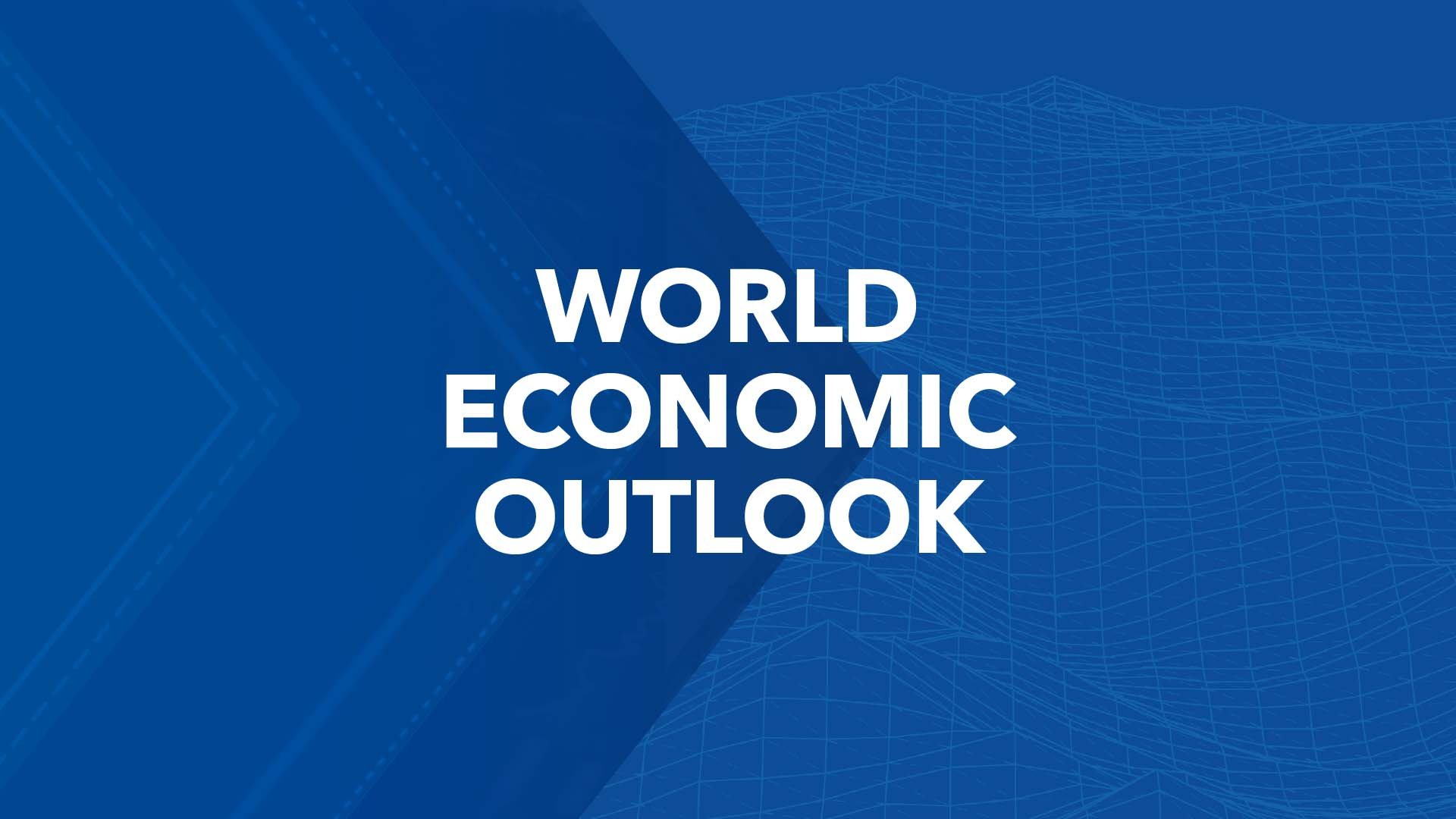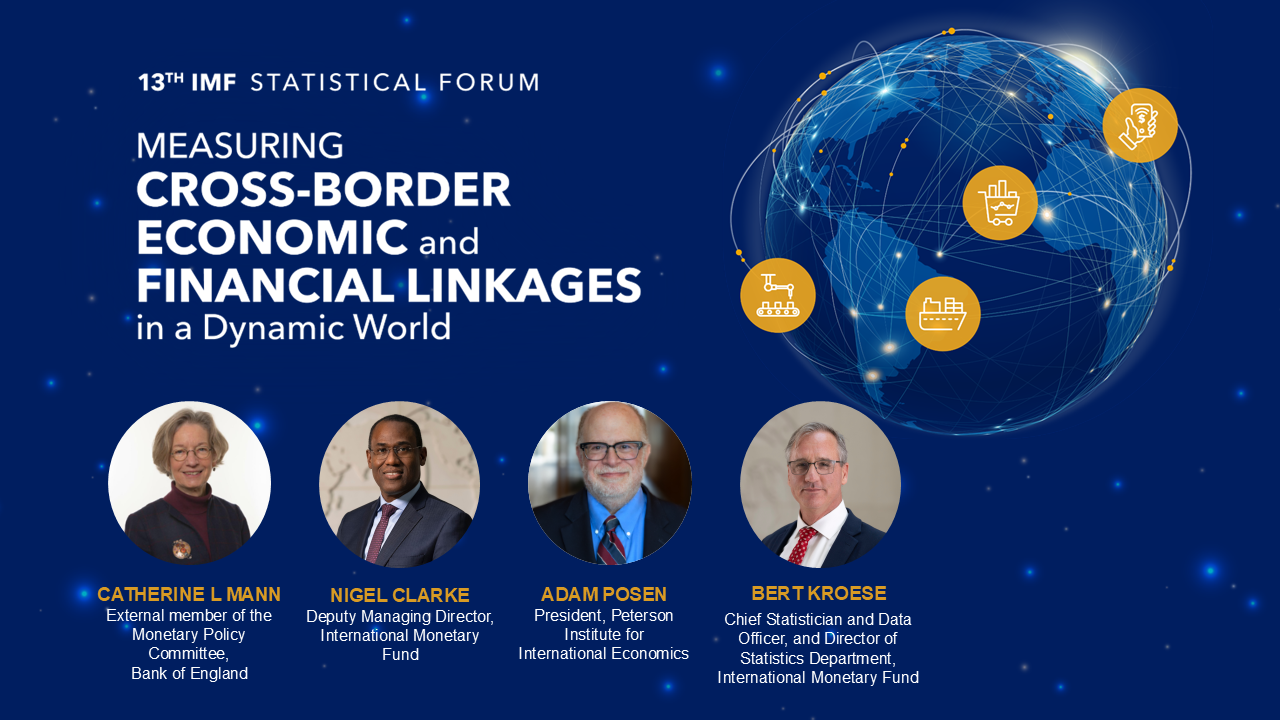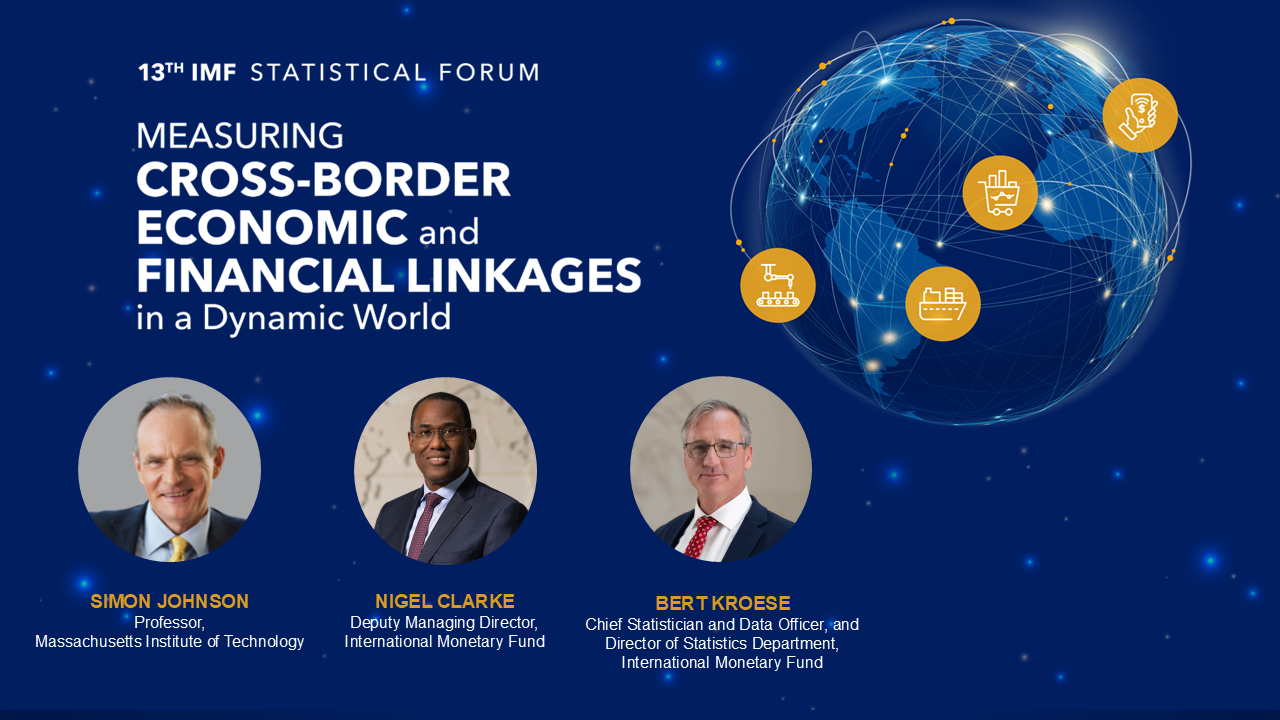Past Events

Press Briefing: World Economic Outlook Update
IMF Chief Economist Pierre-Olivier Gourinchas, along with Petya Koeva Brooks and Deniz Igan, present the latest forecast for the global economy.
Event Details
13th Statistical Forum: Closing Session
Closing Session of the 13th IMF Statistical Forum: Measuring Cross-Border Economic and Financial Linkages in a Dynamic World, featuring a conversation between Deputy Managing Director Nigel Clarke and Dr. Catherine L. Mann, moderated by Adam Posen, followed by closing remarks from Bert Kroese.
Event Details
13th Statistical Forum: Opening Session
Opening session of the 13th IMF Statistical Forum: Measuring Cross-border Economic and Financial Linkages in a Dynamic World, featuring introductory remarks by Bert Kroese and a keynote address by Simon Johnson, followed by a one-on-one discussion with Nigel Clarke
Event Details







